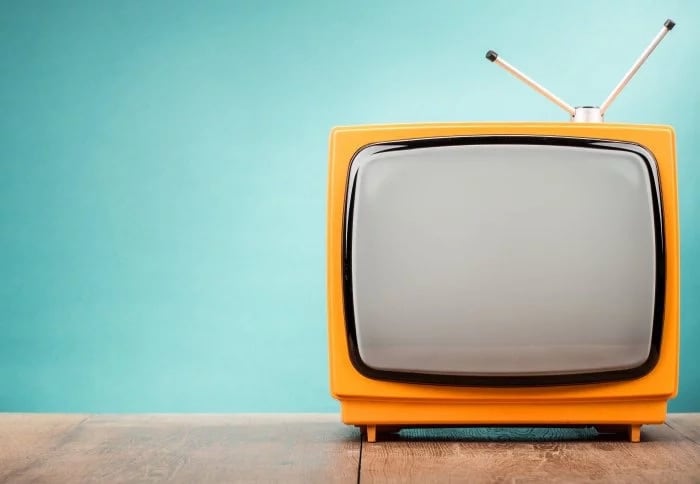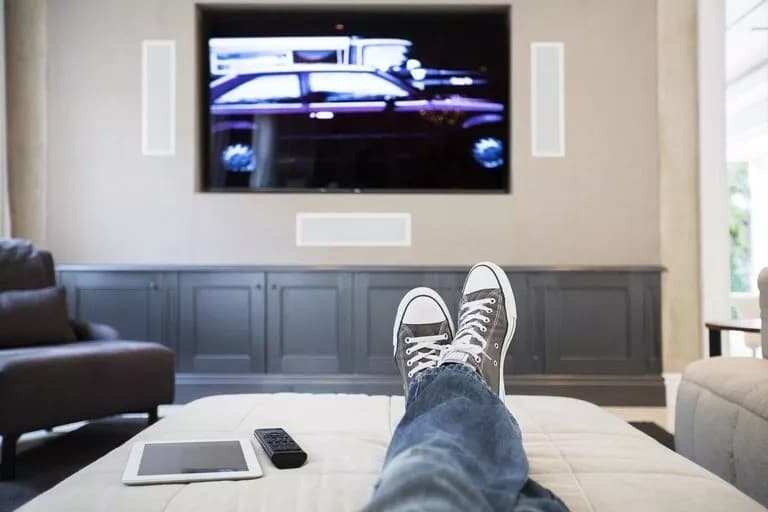Laws and registration of TV license Ghana
In 2013, The GBC halted all collection of the TV licensing Ghana in a move that came as a relief to many. The reasons cited on the official website for registering your licenses, Ghana Official TV License, specifically in the Q&A section is a part that seeks to provide a justification for the sharp increase in the fee.Read on to know all about the laws and registration of TV licenses in Ghana.

There was a statement saying that
“There has been no increase since the introduction of the 30p per year in 1991. As a result, the fee of 30p per year has over the years, depreciated heavily due to economic factors including inflation, currency depreciation, and devaluation. If the fee were indexed to the economic trend annually, the increase would have been far more. At 30p per annum the cost of collection exceeded the returns, which compelled GBC to voluntarily suspend collection since 2013. Compared with other African countries the new fee is still the lowest in the world.
The equivalent fee per annum in the United Kingdom and collected by the BBC, the Public Broadcaster is £145.50.”
About Ghana TV license
The Ghana TV license fee Ghana was introduced 1966 in a decree aptly named the Television Licensing Act 1966(NLCD 89) that seeks to secure further funding for the continued operation and provision of broadcasting services by GBC. GBC has grown to be the largest national broadcaster in Ghana in the many decades since broadcasting began in Ghana back in 1935.
The then Governor of the Gold Coast, Sir Arnold Hodson was looking to ensure national growth and a clear path to that success by removing the problem of ignorance through broadcasting to effectively initiate mass education. GBC has since become a giant in the media industry owning GTV, their flagship national television broadcaster and two national radio stations. GBC also own and is affiliated with more than 10 regional broadcaster that are present in all the ten regions of the country. These station are Uniiq FM, Radio 1, Radio 2, Volta Star, Obunu FM, Radio BAR, Radio Upper West, Sunrise FM, Twin City Radio, Radio Central, Radio Savannah, Garden City Radio and URA Radio. Their affiliate TV stations include, GTV Sports Plus, GTV Govern, GTV Life and Obunu TV.

Read also
NDC gov't will repeal E-Levy Act in 2025 - Mahama boldly assures Ghanaians in video; many react

The mandatory payment for the ownership and use of television receiving set as described in the TV license law in Ghana was reinstated and was to be enforced effective on January 4th 2018. The GBC has come under heavy scrutiny with many people complaining about lack of captivating content to retain audiences and complains of GTV not being as informative as it should be given their considerable resources. According to a Ghana web article from January highlights a particular incident at the Atomic Junction gas explosion that was poorly reported and the media failed in its role to ask the questions that people need answers to.
It was one of many calls for the government and GBC to review their operations and deliver quality content that would justify the TV License fee. It is also not uncommon to come across GTV broadcasting similar content on different channels, an overlap that questions whether the names are different only for show. The announcement of the introduction of the fee was followed by calls from many to abolish TV license fee in Ghana all together. My joy cites some leaders and influential individuals saying they will not pay it.
It stands to be seen whether the reintroduction of the fees will be accompanied by the much needed changes to provision of high quality content similar to the other national broadcasters from around the world but majorly clustered in Europe that Ghana Official TV License Site says charge an even higher premium. Failure to pay the fee will lead the owner of the television receiving set be liable for prosecution. The maximum penalty for the offense is an amount not exceeding one hundred thousand cedis (c1000000.00) or a jail term of not one than one year. For a fee of GHC 36 per annum it is an unnecessary penalty to expose yourself to whether you are a private owner or a dealer.
There are different categories of the fee applicable to different individuals both commercial and Personal. The history of the TV license law is filled with major amendments such as the ones made in 1991 (to include in penalty a prison term and to create a position for the person in charge of its administration) to make it fool proof and offers no loopholes that can be exploited to use the TV set without a proper valid license.
These fees are:
Domestic License Users (Annual)
- One TV Set – GH¢36.00 per household,
- Two Sets or More – GH¢60.00 per household
Commercial License
- Users – GH¢3.00 Monthly per Set / GH¢36.00 per Annum per Set
Dealers’ License
- Repairers – GH¢5.00 Monthly per Outlet /GH¢60.00 per Annum per Outlet
- Retailers and Sales Outlets – GH¢20.00 Monthly per Outlet / GH¢240.00 per Annum per Outlet
Important note is that the Retailers/Sales fees also cover any existing business that assembles or builds any sets for sales or any other purpose.
The TV license fee law in Ghana does not allow for the transfer of a TV set without the proper documentation allowing the new owner to use the set in question. This is one of the many questions one may have on the law, to answer some of them here is a list of key things to be careful about concerning the law.
- If in possession of TV set one has to pay the requisite fees unless you can prove that the set is not in use, in which case you are required to notify GBC that the said set has been decommissioned.
- In the case that you are given a TV set say as a gift you are required to file for a license as the new owner of the set.
- All TV sets in any given household unless officially decommissioned shall be accounted for in the licensing.
- Repairers and other vendors that use a TV set in their premises have to pay the fee as they will use broadcasting services.
- If you do not receive the GTV signal in your area you still have to pay the fee to GBC as it is not for content but for owning and using a television receiving set.
- It is an annual license and is valid for a year according to the dates on your license.
- In the case that you move to a new residence you are required to register your new address in writing addressed to the Deputy Director in charge of TV Licensing at GBC at P.O Box 1633 Accra.
READ ALSO: 7 Reasons you Can't Find Jobs in Ghana
Where to pay TV license in Ghana
You can make payments for your license at any of the 366 Ghana Post offices across the country, at any bank on e-Transact and those without it as well, you can use your electronic cards whether VISA or otherwise, Mobile money payment, GBC mobile collection teams, at any GBC regional office and also at the GBC Head offices located in Kanda. Payment can also be made online at the Government of Ghana e-payments portal.
Here is a step by step guide one how to make the payments via the portal for a domestic license:
Open the portal on your computer.
Go to the Services| MDA tab on the landing page.
Next select GBC – GHANA BROADCASTING CORPORATION from the options.
Next select GBC - TV LICENSE FOR ONE TV SET (DOMESTICL LICENSE USERS (PER MONTH/PER SET)) (if you are paying for one set)
In the page you will be shown the amount to be paid and will provide the TV License ID, TIN number, year and name of the owner.
After completing the above steps you will click on Add to Cart and the number of licenses you wish to pay for. (in order for this step to work you must have enabled cookies on your browser already otherwise it will redirect you to a different page to guide you on how to enable them)
Once done you will be required to enter you address details to get a quote or you can proceed to checkout.
You will have the option of checking out as a guest or you can register an account and login if you already have one.
Next is your billing information including your name and address and company if any and also your gender and date of birth if you decide to checkout as a guest. You then enter whether the license is to be shipped to the address you provided or if you wish to provide a different address for the license.
The next step will be selecting the shipping option between pick up which is free from MDA or DHL National or International Shipping at a cost that varies depending on your location.
Payment options follow and you can select between: Airtel or MTN Mobile money, Tigo cash, Payall, e-Tranzact and MasterCard using your secure code and also using VISA cards.
The last and final step is the Order Review where you can check your order details and will be required to E-Payments terms of use before proceeding to place your order.
The system in place makes it easy and convenient for Ghanaians to pay TV license even when abroad.
READ ALSO: DVLA driving test questions and answers
Source: YEN.com.gh







